When it comes to CI/CD tools, we’re all too familiar with Jenkins. It has been a popular choice among Java developers for continuous integration and continuous development approach. It is a super-effective tool to build and test projects, thereby making easy integration possible continuously. Also, it is an open-source tool that provides multiple plugins.
However, Jenkins isn’t the only CI/CD tool out there. You can pick a Jenkins alternative as you’ve got a lot of options!
Now, the question is, with so many choices, how do you pick the best alternative to Jenkins? Well, to make it easier for you, we have created a list of 21 of the best Jenkins alternatives. Keep reading to learn about them.
Note: The following list of Jenkins alternatives isn’t in any particular order. Its hierarchy does not reflect importance or value in any way, shape, or form.
1. GitLab

GitLab CI/CD tool is a part of GitLab and a powerful alternative to Jenkins. It is an open-source web interface that can be used to apply all the continuous methods like integration, delivery, and deployment to your project without any third-party application. It provides a user-friendly interface along with distributed version control services.
Some of the top features that make it one of the best alternatives to Jenkins are:
- Just like Jenkins, it is an open-source tool too.
- You can test your build in parallel, thereby reducing time.
- It allows docker integration and helps in automating release and application delivery.
- It provides better support.
2. Atlassian Bamboo

Bamboo is a product of Atlassian, and it’s a useful tool for continuous integration, development, and deployment. It runs builds and tests and efficiently integrates with JIRA to update issues and commits and connect test results for an end to end visibility within the team. It supports multiple technologies like AWS, Amazon S3 buckets, Git, SVN, Mercurial, etc.
Some of the key features of Bamboo includes:
- It can be used to run parallel batch tests.
- It provides seamless integration with JIRA, BitBucket, and Fisheye.
- It is effortless to set up.
3. CircleCI
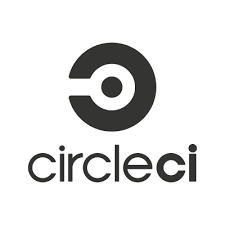
CircleCIis a flexible tool with easy maintenance and can run in almost any environment. Every commit leads to automatic build execution. To add to it, if any new build is triggered, any queued or running build is automatically canceled.
Besides, it provides features like:
- Integration with GitHub, Bitbucket, and GitHub Enterprise.
- It splits tests among multiple containers, thereby reducing build time.
- It provides SSH support so that users can access the Virtual Machine via SSH and run commands.
- Very easy to maintain as it allows for automatic upgrades.
4. TeamCity
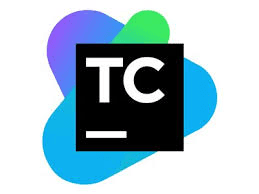
TeamCity is also known as the “Intelligent CI Server” because of its ease of use and integration. It offers different installation packages for different operating systems. It is a powerful tool developed from JetBrains, which allows building, and running tests even before changes are committed, hence keeping the code clean.
Some of its features that make it one of the best Jenkins alternatives are:
- It is well documented and provides easy installation.
- It provides integration with tools like Docker, JIRA, etc.
- It offers well-defined APIs available for extension.
5. Travis CI

Travis CI is a continuous integration and testing CI/CD tool. It is free of cost for open source projects and provides seamless integration with GitHub. It supports more than 20 languages, like Node.js, PHP, Python, etc. along with Docker.
Some of the key features of Travis CI includes:
- Very easy to set up with broad user community support.
- No project is merged before tests are passed successfully.
- You can easily customize the build environment as per your requirements.
6. BuildMaster

BuildMaster by Inedo is one of the best Jenkins alternatives that offers continuous integration on different platforms. With BuildMaster, you can manage your apps and deploy them to the environment without any hassle. Moreover, it doesn’t require extensive expertise to set up the pipelines.
Some of its features include:
- Create release management platforms that can be self-managed.
- Automated gates prevent the release of untested software.
7. Bitrise

Bitrisecomes as a platform as a service (PaaS) for continuous integration and continuous delivery in mobile applications. Each build runs on its virtual machine, and at the end of the build, the data is scrapped. It offers a free plan and allows integration with services like Slack, HockeyApp, etc.
Also, it provides features like:
- Apps are delivered without any manual intervention.
- It integrates with major third-party testing and deployment services.
- It allows quick setup having service integration with a lot of services.
8. Spinnaker
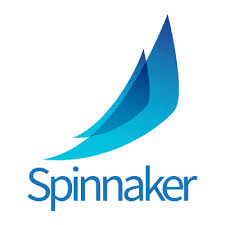
Spinnaker is an open-source platform developed by Netflix for continuous delivery. It is powerful and provides integration with major cloud providers. It supports multiple hosting technologies like Docker, Kubernetes, etc. It is useful for cloud-focused approaches.
Some of the key features of Spinnaker includes:
- Powerful and flexible pipeline management system.
- It provides integrations to the major cloud providers like Google Cloud Platform, AWS, Microsoft Azure, and Oracle Cloud.
9. UrbanCode

An IBM product, UrbanCode, is a continuous integration application that provides multiple features like visibility, traceability, and auditing bundled in a single package. It enables you to deliver applications faster. Irrespective of the environment, you can quickly deploy applications to data centers, cloud, or virtual environments with no error.
Some of its features that make it a preferred Jenkins alternative are:
- It minimizes deployment errors.
- Drag and drop feature in the editor makes it convenient to use.
- Increased frequency to deliver applications.
10. Buddy

Buddy, also known as Buddy Works, is a continuous integration and delivery software with an interactive user interface, making for a perfect Jenkins alternative. It helps to build, test, and deploy applications faster quickly. You can get your CI/CD pipeline running in just a few minutes’ configurations.
Besides, it provides feature like:
- It offers on-premise solutions.
- It provides support for multiple languages.
- One can customize the build and test environment as per requirements.
11. Drone.io

Drone is considered one of the best Jenkins alternatives when it comes to integrating and deploying for busy development teams. It is a continuous self-service integration and delivery platform. It provides you the ability to customize multiple features on the go. It integrates easily with GitHub, GitLab, Bitbucket, and GitHub Enterprise.
Some of its top features include:
- It supports multiple languages and operating systems.
- It provides plugins for pre-configured steps.
- Every build is executed in an isolated container.
- It provides auto-scaling with a single binary file.
12. AWS CodePipeline

AWS CodePipeline is a continuous integration and continuous delivery service that easily and quickly automates your release pipelines for updates. Every time you change the code, AWS CodePipeline will build, test, and deploy your application. Also, it can be easily integrated with GitHub.
Some of its features that make it an ideal Jenkins alternative are:
- Follows the pay for what you use approach. You need not block your money or pay any fees. You only pay for what you are using.
- It provides a workflow that can be configured as per your release stages.
- It offers parallel execution, thereby increasing the workflow speed.
13. CruiseControl

CruiseControl is a continuous integration tool, and it provides a framework that can be extended to create customized build processes. Though written in Java, it can be used in different projects with the help of builders provided by it. It can integrate with different source control systems.
Some of the key features of CruiseControl includes:
- Provide remote management support.
- You can build multiple projects on a single server.
- Provides email and messaging notifications.
14. Integrity

Integrity is a continuous integration server that builds your code and runs your test as soon as a commit happens. A report is then generated, and the users or the team is notified. The only limitation is that it can be used only with GitHub but can be mirrored with other SCM.
Some of its features include:
- It supports multiple notification mechanisms.
- It works fine with GitHub Repos, public and private.
15. Shippable

Shippable provides an easy way to set up continuous integration and delivery for applications. It optimizes DevOps operations and provides ready-to-use build images. It provides analytics to help you improve. It also offers machine-level isolation to secure the workflows.
Some of the key features of Shippable includes:
- Enable Continuous Improvement with rich analytics and insights.
- Secures your workflows with Role-Based Access Control (RBAC)
16. CodeShip
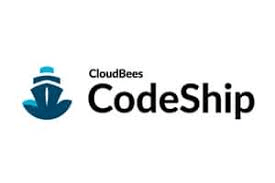
CodeShip is a hosted continuous integration and continuous delivery platform found by CloudBees. It provides fast feedback and customized environments to build applications. It provides integration with almost anything and is good at helping you scale as per your needs. It comes free for up to 100 monthly builds.
Besides, it provides feature like:
- Parallel execution for fast feedback and minimum to no wait times.
- Easy to configure.
- It provides support for headless browsers.
17. Buildkite

Buildkite enables you to run continuous integration pipelines on your infrastructure. It provides fast and secure integration. It allows you to run multiple builds with maximum control. It has an interface that provides visibility of your pipelines, which you can monitor.
Some of its features include:
- It provides unlimited language support.
- It provides chat support for quick resolutions.
- It offers easy integration with tools like Slack, HipChat, etc.
18. GoCD
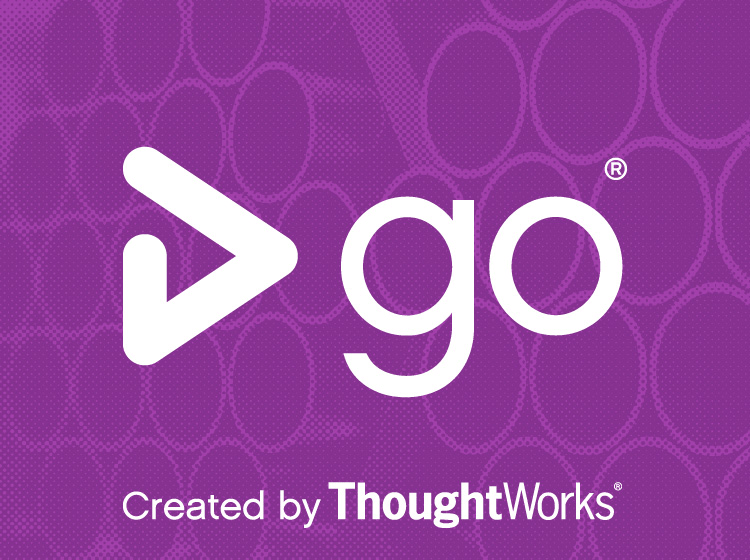
GoCD comes as a continuous open-source integration and continuous delivery server with an end-to-end map showing the path to production in a single view. You can integrate it with popular environments like Kubernetes, Docker, and many more. It has advanced features of traceability wherein you can easily debug a broken pipeline.
Some of its features that make it a capable Jenkins alternative are:
- It has a great support community.
- Easy to upgrade even when plugins are integrated.
- It provides fast feedback.
19. Semaphore CI

Semaphore provides you features for continuous integration and delivery by removing technical challenges. You need not depend on hiring staff specifically for deployments. You only need to define a workflow, and there you go with building a great application.
Some of the main features of Semaphore CI includes:
- It provides flexible pipelines for complex projects.
- It offers parallel testing for faster movement.
- Debugging capabilities for quick resolutions.
20. Microtica

Microtica is a DevOps tool for automation with a complete software delivery process. It allows you to use reusable pieces of code to help you build infrastructure in no time. With Microtica’s pipeline workflow, you can get an overview of the build process at any given time. It’s not just all. It also allows you to automate sleep cycles, thus reducing AWS cost drastically.
Also, it provides features like:
- It allows you to deploy microservices with Kubernetes in no-time.
- Reduce AWS costs for non-production environments
21. AppVeyor

AppVeyor provides continuous integration and delivery services for any platform. You can quickly build, test, and deploy your applications in a fast manner. It supports GitHub, Bitbucket, Kiln, etc. Each build executes in an isolated and clean environment.
Some of its features include:
- The console output makes it easy to debug the failure.
- It provides faster builds with virtual machines and pseudo access.
- It integrates with any source control tool.
Wrapping up
With so many options, you can easily pick an alternative to Jenkins. However, while going for any of the Jenkins alternatives, you need to check how well they can be integrated into your QA workflow to fulfill your needs. Do you know tools like Jenkins and most of its alternatives can be integrated well with cross browser testing (CBT) tools like LambdaTest to ensure optimal user experience across all browsers and browser versions? Well, now, you do!
We genuinely hope this guide has helped you find the best Jenkins alternative for your CI/CD needs. It took us a lot of time to narrow down the options so that you can save your research time, so if you did find this list valuable, we’d be grateful if you could share it on your LinkedIn or Twitter.
And if it didn’t help you, we would like to know how to make it better. So, please let us know your honest feedback in the comments below.
